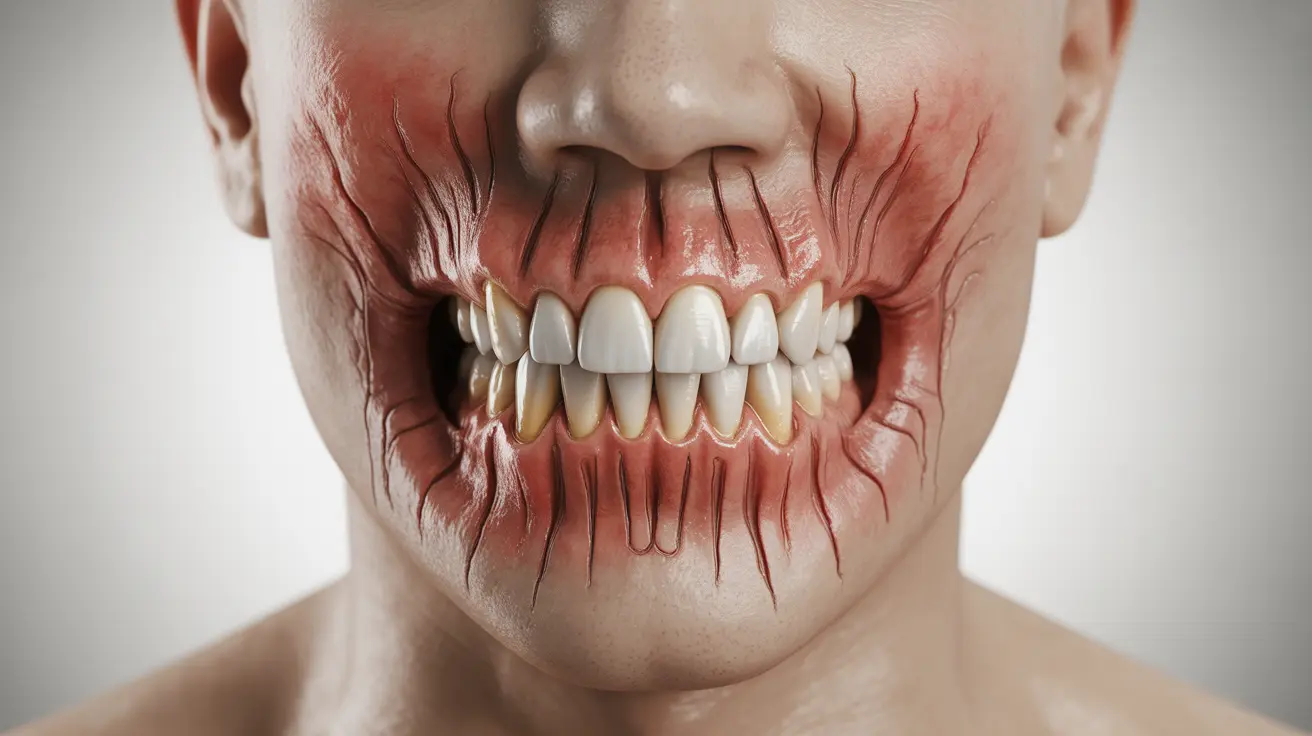Mouth pain can significantly impact your daily life, affecting basic activities like eating, speaking, and even sleeping. Whether it's a sharp toothache, tender gums, or sensitive spots on your tongue, understanding the root cause of your discomfort is crucial for finding effective relief and preventing future occurrences.
This comprehensive guide will help you identify common causes of mouth pain, explore treatment options, and know when to seek professional help. We'll also discuss prevention strategies and lifestyle changes that can promote better oral health.
Common Causes of Mouth Pain
Mouth pain can stem from various sources, each requiring different approaches to treatment. Here are the most frequent causes:
Dental Issues
- Tooth decay and cavities
- Cracked or broken teeth
- Exposed tooth roots
- Dental abscess
- Worn tooth enamel
Soft Tissue Problems
- Canker sores
- Cold sores
- Burning mouth syndrome
- Oral thrush
- Gum disease (gingivitis or periodontitis)
Other Medical Conditions
- Temporomandibular joint (TMJ) disorders
- Sinus infections
- Vitamin deficiencies
- Nerve conditions
- Hormonal changes
Treatment Options for Mouth Pain
Immediate Relief Measures
- Over-the-counter pain relievers
- Oral numbing gels
- Salt water rinses
- Ice packs for swelling
- Avoiding very hot or cold foods
Long-term Solutions
- Professional dental cleaning
- Filling cavities
- Root canal treatment
- Antibiotic treatment for infections
- Dietary modifications
Prevention Strategies
Maintaining good oral health can help prevent many causes of mouth pain. Key preventive measures include:
Daily Oral Care
- Brushing twice daily with fluoride toothpaste
- Flossing at least once daily
- Using an antiseptic mouthwash
- Regular dental check-ups
- Replacing your toothbrush every 3-4 months
Lifestyle Modifications
- Limiting sugary and acidic foods
- Staying hydrated
- Avoiding tobacco products
- Managing stress levels
- Maintaining a balanced diet rich in vitamins and minerals
When to Seek Professional Help
While some mouth pain can be managed at home, certain symptoms warrant immediate medical attention:
- Severe pain that persists for more than 1-2 days
- Significant swelling in the face or jaw
- Difficulty breathing or swallowing
- High fever accompanying mouth pain
- Signs of infection (pus, severe redness, warmth)
Frequently Asked Questions
What are the most common causes of mouth pain and how can I identify them?
The most common causes include dental cavities, gum disease, canker sores, and infections. You can identify different types of pain by their location, nature (sharp, dull, or throbbing), and triggering factors like temperature sensitivity or pressure.
How can I treat mouth pain at home, and when should I seek medical help?
Home treatments include over-the-counter pain relievers, salt water rinses, and cold compresses. Seek medical help if pain is severe, persists for more than two days, or is accompanied by fever, significant swelling, or difficulty breathing.
Can nutritional deficiencies cause mouth pain, and if so, which vitamins are most commonly involved?
Yes, nutritional deficiencies can cause mouth pain. The most common deficiencies linked to oral health problems include vitamin B12, vitamin C, iron, and folate. These deficiencies can lead to mouth sores, burning sensation, and increased susceptibility to infections.
What are some lifestyle changes I can make to prevent recurring mouth sores or infections?
Key lifestyle changes include maintaining good oral hygiene, eating a balanced diet, staying hydrated, reducing stress, avoiding irritating foods, and quitting tobacco use. Regular dental check-ups are also essential for prevention.
How can I distinguish between a toothache that needs emergency dental care versus one that can wait for a regular appointment?
Seek emergency care if you experience severe, persistent pain, significant swelling, trauma to the tooth, or signs of infection like fever and pus. Minor sensitivity or mild discomfort can usually wait for a regular appointment, but monitor for worsening symptoms.




